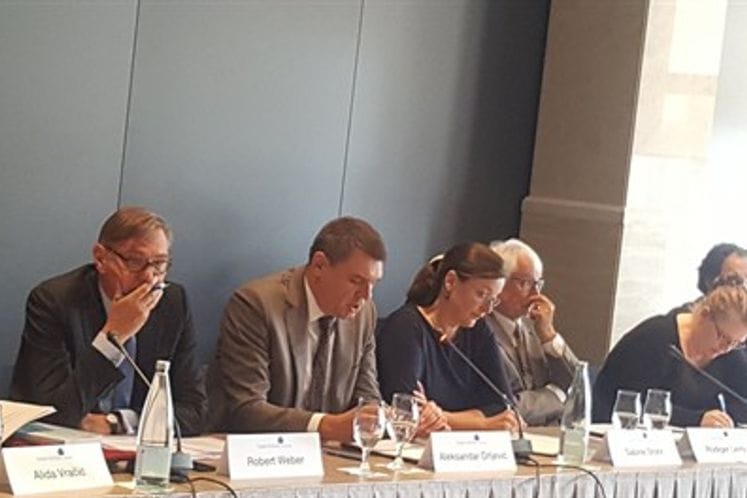- Government of Montenegro
Chief Negotiator Drljević in Budva: EU accession i...
Chief Negotiator Drljević in Budva: EU accession is strong driver of economic development

Chief Negotiator Aleksandar Drljević stated that the accession process to the EU is one of the strongest drivers of economic development of the whole region, assessing that establishing a competitive economic system will provide conditions for a better life for citizens and slow down the trend of emigration of young and educated people.
Speaking at the Conference on "Western Balkans between economic development and emigrations" in Budva, the Chief Negotiator highlighted that it is in the interest of both, the region and the EU that the Western Balkans continue with the accession process.
"Countries of the region show, through their implementation of national policies and commitment to cooperation that they do not want to be on the sidelines of the Europe. We are constantly proving that by investing joint efforts to tackle the challenges that modern time pose to us, as partners we can make a significant contribution to the stability and security of the continent," Chief Negotiator Drljević stressed.
According to the Chief Negotiator, Montenegro continuously promotes close economic cooperation at the regional level and supports development of national transport and energy infrastructure.
He referred to the brains drain, adding that the Western Balkans and Montenegro will continue to be exporters of young, smart and educated people and expressed the expectation that economic development will slow down the trend of young people emigration.
The Chief Negotiator highlighted that the Government aim is to create a competitive economic system, which will provide sustainable economic growth and development and which is conditioned by the development of infrastructure and implementation of reforms. He added that today, Montenegro has a strong legislative framework established in most negotiating areas, in accordance with the European regulation and standards, as well as stronger institutions but it is the most important that the effects of reforms are visible in everyday life of citizens.
"Today the EU is facing new crises and challenges which are likely to require the transformation of its institutions and policies and it is possible that the EU we are entering will be different from today's Union. However it will not shake us and we will remain determined to become part of a community of states and nations that share common values and build together a prosperous Europe to the measure of its citizens, Chief Negotiator Drljević concluded.
